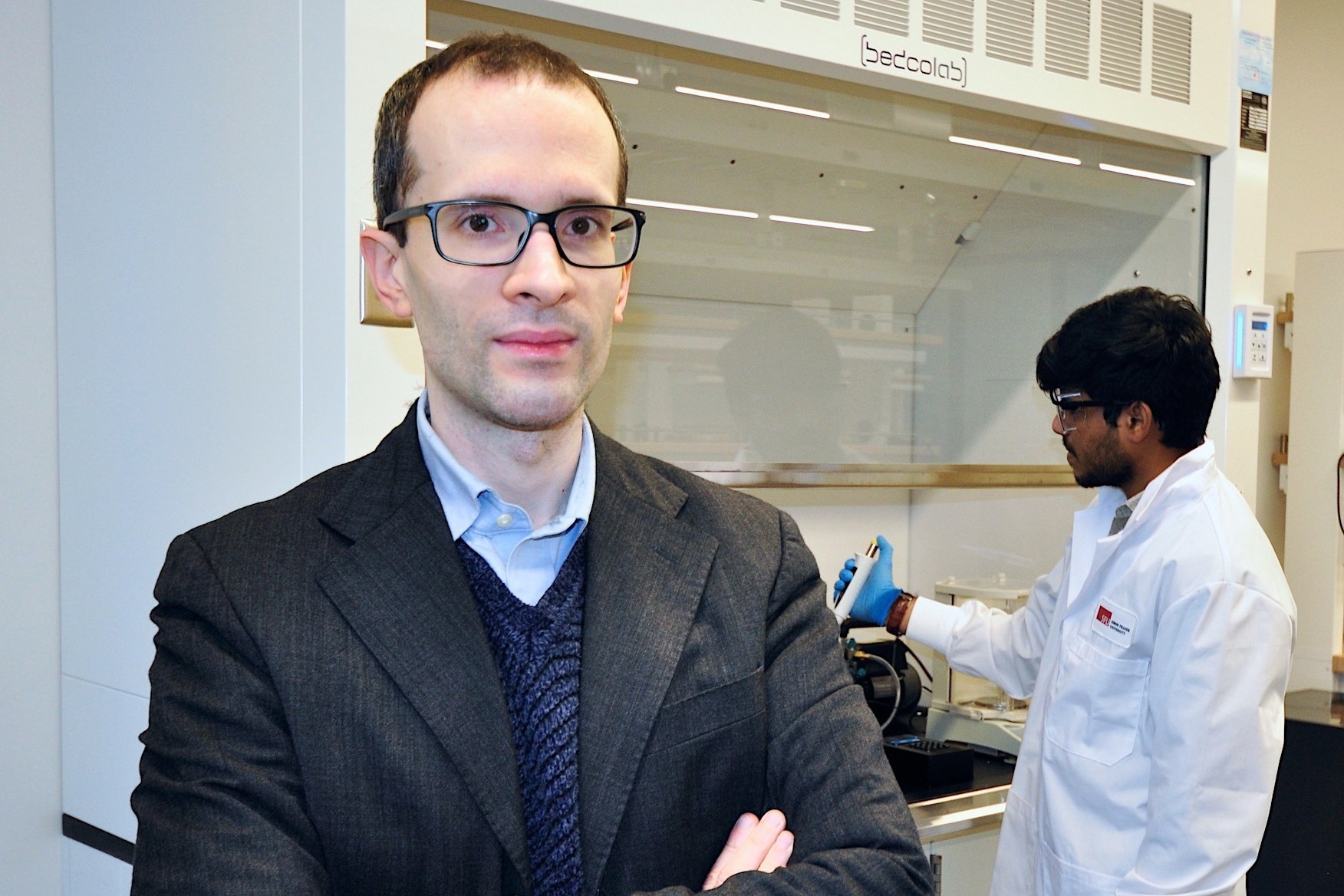
Image Credit: Simon Fraser University
Leading a multinational team of top printable electronics experts, Pecunia has identified critical priorities and promising directions for printable electronics to enable self-powered, environmentally friendly smart sensors. In his study, which appeared in Nature Electronics on December 28th, 2022, he outlines his futuristic insights.
Equipping everyday objects and environments with intelligence via smart sensors would allow us to make more informed decisions as we go about in our daily lives. Conventional semiconductor technologies require complex, energy-intensity, and expensive processing, but printable semiconductors can deliver electronics with a much lower carbon footprint and cost, since they can be processed by printing or coating, which require much lower energy and materials consumption.
Vincenzo Pecunia, Professor, Simon Fraser University
According to Pecunia, the solution could lie in creating printable electronics that can function with energy gathered from the environment, such as omnipresent radiofrequency signals or ambient light.
Pecunia added, “Our analysis reveals that a key priority is to realize printable electronics with as small a material set as possible to streamline their fabrication process, thus ensuring the straightforward scale-up and low cost of the technology.”
Ingenious low-power techniques are described in the article that could enable printed electronics to be powered by ubiquitous mobile signals, essentially enabling smart sensors to generate their own power.
“Based on recent breakthroughs, we anticipate that printable semiconductors could play a key role in realizing the full sustainability potential of the Internet of Things by delivering self-powered sensors for smart homes, smart buildings and smart cities, as well as for manufacturing and industry,” Pecunia further stated.
Pecunia has already made significant strides in the development of self-powered printable smart sensors, showcasing printed electronics with exceptionally low power dissipation and the first printable devices powered by ambient light using miniature printable solar cells.
His research team at SFU’s School of Sustainable Energy Engineering specializes in the creation of cutting-edge strategies for printable, eco-friendly solar cells and electronics for use in upcoming smart devices.
By integrating electronics, sensors, and energy harvesters seamlessly at the touch of a “print” button at a single production site, Pecunia’s team’s semiconductor technologies have the potential to reduce the carbon footprint, supply chain issues, and energy costs associated with long-distance transport in conventional electronics manufacturing.
Pecunia further stated, “Due to their unique manufacturability, printable semiconductors also represent a unique opportunity for Canada. Not only to become a global player in next-generation, eco-friendly electronics, but also to overcome its reliance on electronics from faraway countries and the associated supply chain and geo-political issues.”
He further added, “Our hope is that these semiconductors will deliver eco-friendly technologies for a future of clean energy generation and sustainable living, which are key to achieving Canada’s net-zero goal.”
Journal Reference
Portilla, L., et al. (2022) Wirelessly powered large-area electronics for the Internet of Things. Nature Electronics. doi:10.1038/s41928-022-00898-5.